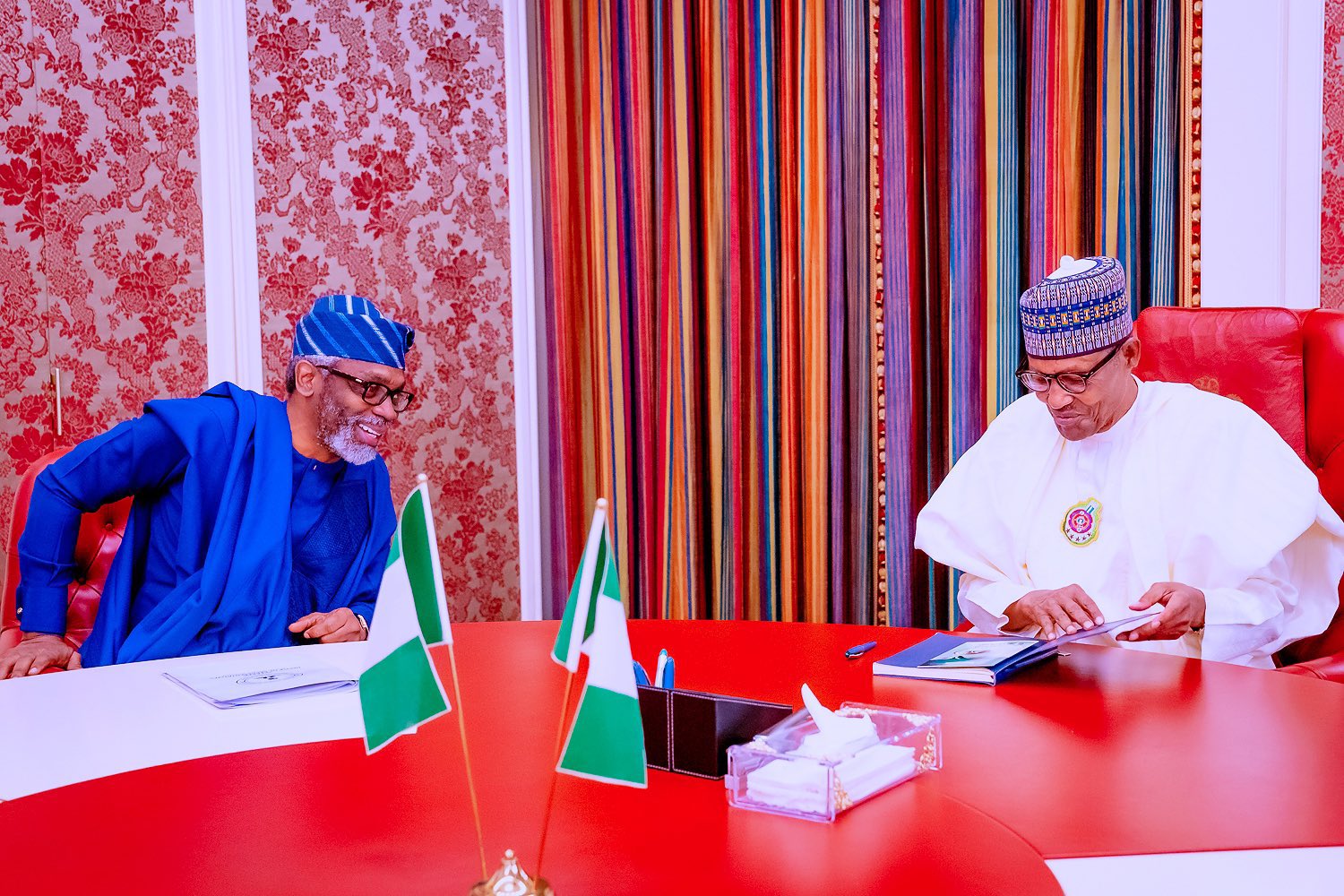New Pipeline Deals to End Africa's Energy Poverty
Shifting from dirty fossil fuels to cleaner, renewable energy is the ultimate goal of the global Just Transition campaign. But, Africa has another priority: eradicate energy poverty first. New cross-border oil and gas pipeline projects aim to do just that, as a means of supporting Africa’s unique transition to the global Just Transition agenda.
More than 600 million Africans still lack access to electricity, and 900 million are without clean cooking solutions, according to a 2024 World Bank fact sheet.
Yet, Africa is sitting on 125 billion barrels of crude oil and 620 trillion cubic feet of natural gas.
“This very statistic has led the citizens of Africa, not only corporations, to rally behind the call to ‘make energy poverty history,” said African Energy Chamber Executive Chairman NJ Ayuk in a statement.
“And it is large-scale oil and gas projects that will achieve this goal.”
While the global Just Transition advocates for a shift from fossil fuels to green energy, Africa is grappling with another priority that continues to stir debate around a central question.
How can Africa transition fairly, addressing energy poverty by utilising the continent’s vast, largely untapped oil and gas reserves, without abruptly abandoning economies that still rely heavily on fossil fuels?
Renowned scholar and policy strategist, Professor Arthur G.O. Mutambara, champions a Global South-led approach to the Just Energy transition, urging developing nations to reject external dictates that fail to consider their countries’ unique development realities.
In an excerpt in his April 2025 book, Artificial Intelligence: A Driver of Inclusive Development and Shared Prosperity for the Global South, Mutambara emphasises that while the shift from fossil fuels to renewable energy is essential, it must be done on terms defined by the Global South, with equity, dignity, and development at the core.
He also argues that the number one issue for the Global South is addressing energy poverty.
“If to eradicate energy poverty, citizens of these economies must burn fossil fuels for a couple more decades, so be it,” he argues in the book.
As activists around the world — and across Africa — continue to demand an immediate push away from fossil fuels, Africa is seeing a rise in cross-border oil and gas pipelines.

Recent advancements include: the signing of a bilateral oil pipeline agreement between the Republic of Congo and Russia; an agreement between Nigeria and Equatorial Guinea to fast-track a joint natural gas pipeline; and an announcement that the East African Crude Oil Pipeline (EACOP) has exceeded 50% completion rate, are among significant milestones recorded over the second quarter of 2025.
According to the latest update on the construction of EACOP in Uganda and Tanzania, the pipeline is progressing well with a continued focus on safety, environmental sustainability, and local community engagement.’
The 1,443-km EACOP is set to link Uganda’s oil fields in the Lake Albert region to the port of Tanga in Tanzania, facilitating the export of up to 246,000 barrels per day.
TotalEnergies (62%) is the project’s key shareholder, with Uganda National Oil Company Limited (UNOC) and Tanzania Petroleum Development Corporation (TPDC) each holding 15% shares. Upon completion, the project will be the longest heated crude oil pipeline in the world.
As countries push to expand access to natural gas energy and reduce reliance on biomass, regional pipelines capitalise on the continent’s abundant hydrocarbon resources.
“New pipelines have the potential to deliver LPG and natural gas to underserved regions, reducing dependence on biomass and accelerating the shift toward cleaner household and industrial energy,” said Ayuk.
In June, the Republic of Congo finalised a pipeline cooperation agreement with Russia, laying the foundation for the Pointe-Noire-Loutete-Maloukou-Trechot oil pipeline.
The deal encompasses joint planning, financing, construction, and operation, and is expected to be executed within three years.
In the same month, Nigeria and Equatorial Guinea signed a bilateral agreement to expedite the development of a joint natural gas pipeline, known as the Gulf of Guinea Gas Pipeline (GOGGP).
The cross-border project is expected to boost regional gas trade, expand export capacity, and support the transition to cleaner energy sources.
“This is more than just a treaty; it is a shared economic vision between two friendly nations. Nigeria stands ready to collaborate fully with Equatorial Guinea to make the GOGGP a reality,” said Nigeria’s Minister of State for Petroleum Resources (Gas), Rt. Hon. Ekperikpe Ekpo during the signing of the agreement in Nigeria.
To illuminate Africa’s energy narrative, the annual Africa Energy Week, scheduled for the end of September and early October, has strategically incorporated a Just Energy Concert on the eve of the main event.
“The just energy transition concert aims to inspire a new era of innovation, celebration and progress across Africa’s energy sector by integrating two promising industries: culture and energy,” said the Organisers of the event on their website.
Beyond new projects, existing infrastructure players are also expanding their roles. The West African Gas Pipeline Company (WAGPco), backed by Chevron and other shareholders early in the year, began routine maintenance on the pipeline to ensure it continues to deliver Nigerian gas to Benin, Togo, and Ghana, supporting electricity generation and industrial energy needs across the region.
During the West African Gas Pipeline Committee of Ministers (CoMs) meeting in Accra in April, WAPCo Managing Director, Michelle Burkett, called for stronger collaboration among member states and stressed the urgency of coordinated action to stabilise gas flow and drive energy security in the sub-region.

“Our ability to fully unlock the WAGP’s potential, is increasingly shaped by the collective effort from all stakeholders,” said Burkett.
In southern Africa, the Republic of Mozambique Pipeline Investments Company, which operates the Mozambique–South Africa Gas Pipeline, recently opened a new office in Maputo. The move is part of a broader strategy to deepen regional integration and improve gas distribution systems.
“It reinforces our strategic focus on sustainability, reliability, and regional integration in the energy sector. It also supports our goal of ensuring a stable, uninterrupted energy supply, not only for Mozambique but for the entire Southern African region,” said the Republic of Mozambique Pipeline Investments Company (ROMPCO) Chief Executive Officer, Mlandzeni Boyce.
The momentum behind these regional pipeline projects coincides with plans to operationalise the US$5 billion African Energy Bank (AEB) this year.
Established by the African Petroleum Producers’ Organisation (APPO) and the African Export-Import Bank (Afreximbank), the AEB will offer tailored financing solutions to help close funding gaps for oil and gas project developments across the continent.
Credit: By Conrad Onyango, Bird Story Agency
You may also like...
Diddy's Legal Troubles & Racketeering Trial

Music mogul Sean 'Diddy' Combs was acquitted of sex trafficking and racketeering charges but convicted on transportation...
Thomas Partey Faces Rape & Sexual Assault Charges

Former Arsenal midfielder Thomas Partey has been formally charged with multiple counts of rape and sexual assault by UK ...
Nigeria Universities Changes Admission Policies

JAMB has clarified its admission policies, rectifying a student's status, reiterating the necessity of its Central Admis...
Ghana's Economic Reforms & Gold Sector Initiatives

Ghana is undertaking a comprehensive economic overhaul with President John Dramani Mahama's 24-Hour Economy and Accelera...
WAFCON 2024 African Women's Football Tournament

The 2024 Women's Africa Cup of Nations opened with thrilling matches, seeing Nigeria's Super Falcons secure a dominant 3...
Emergence & Dynamics of Nigeria's ADC Coalition

A new opposition coalition, led by the African Democratic Congress (ADC), is emerging to challenge President Bola Ahmed ...
Demise of Olubadan of Ibadanland
Oba Owolabi Olakulehin, the 43rd Olubadan of Ibadanland, has died at 90, concluding a life of distinguished service in t...
Death of Nigerian Goalkeeping Legend Peter Rufai

Nigerian football mourns the death of legendary Super Eagles goalkeeper Peter Rufai, who passed away at 61. Known as 'Do...



